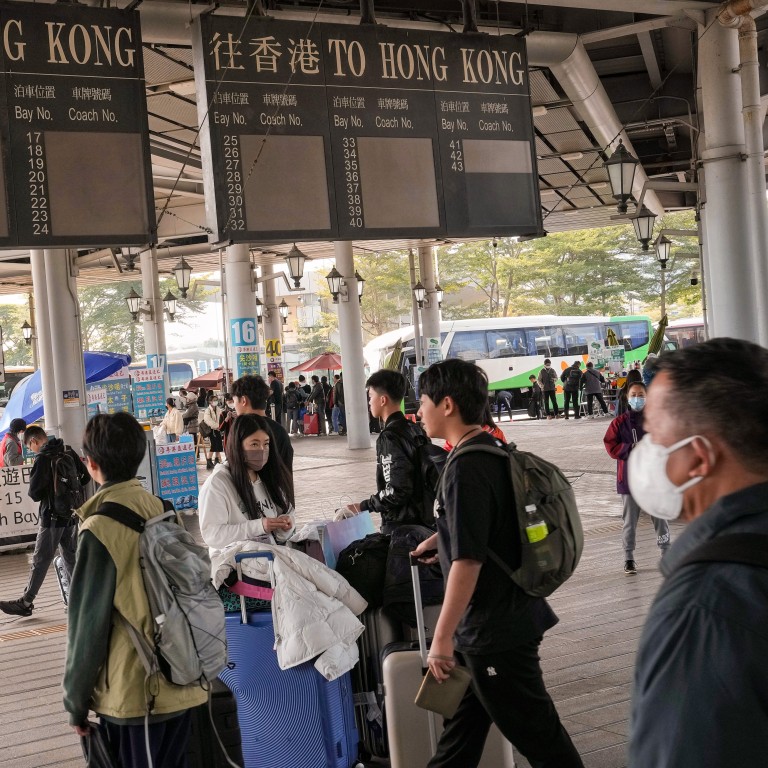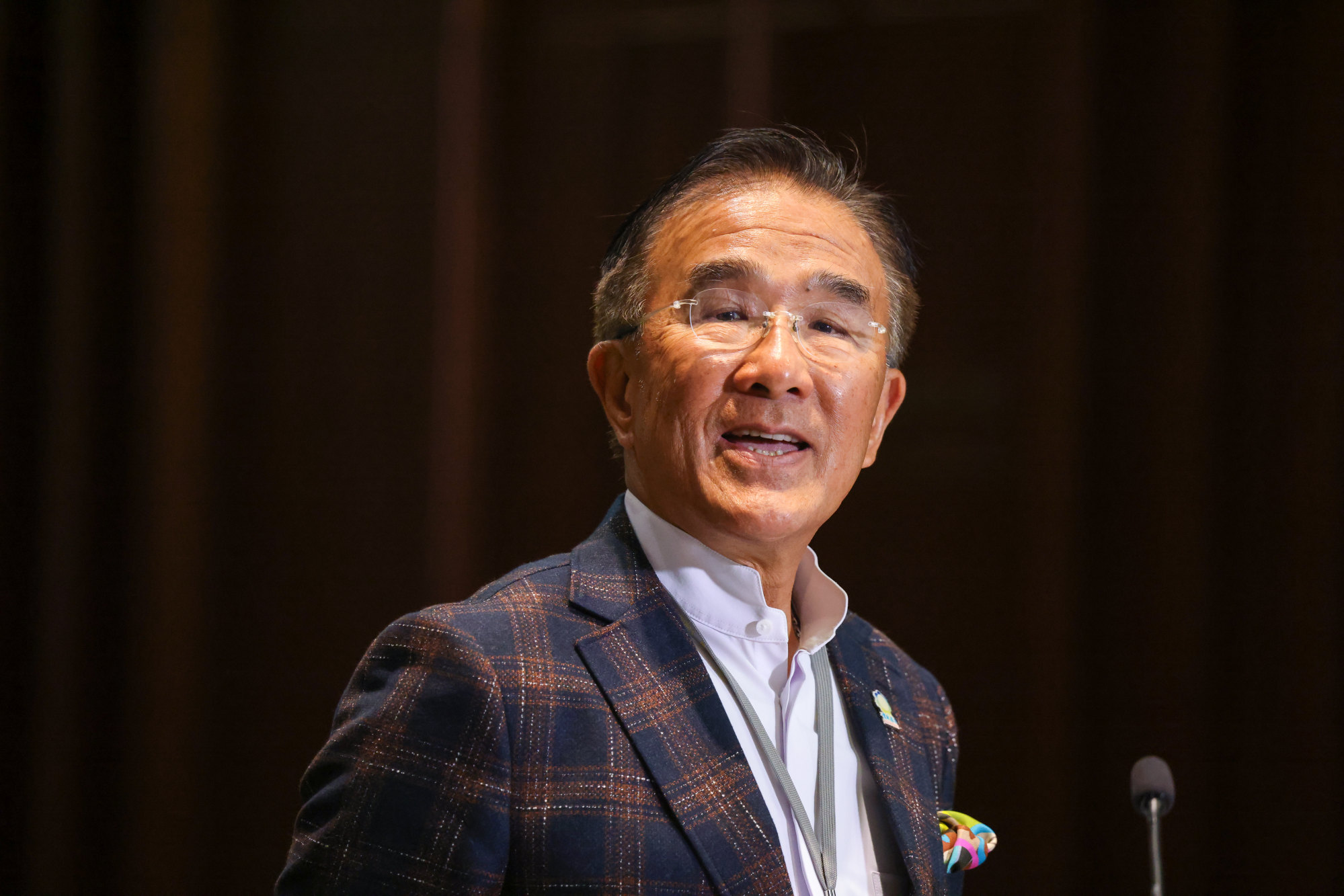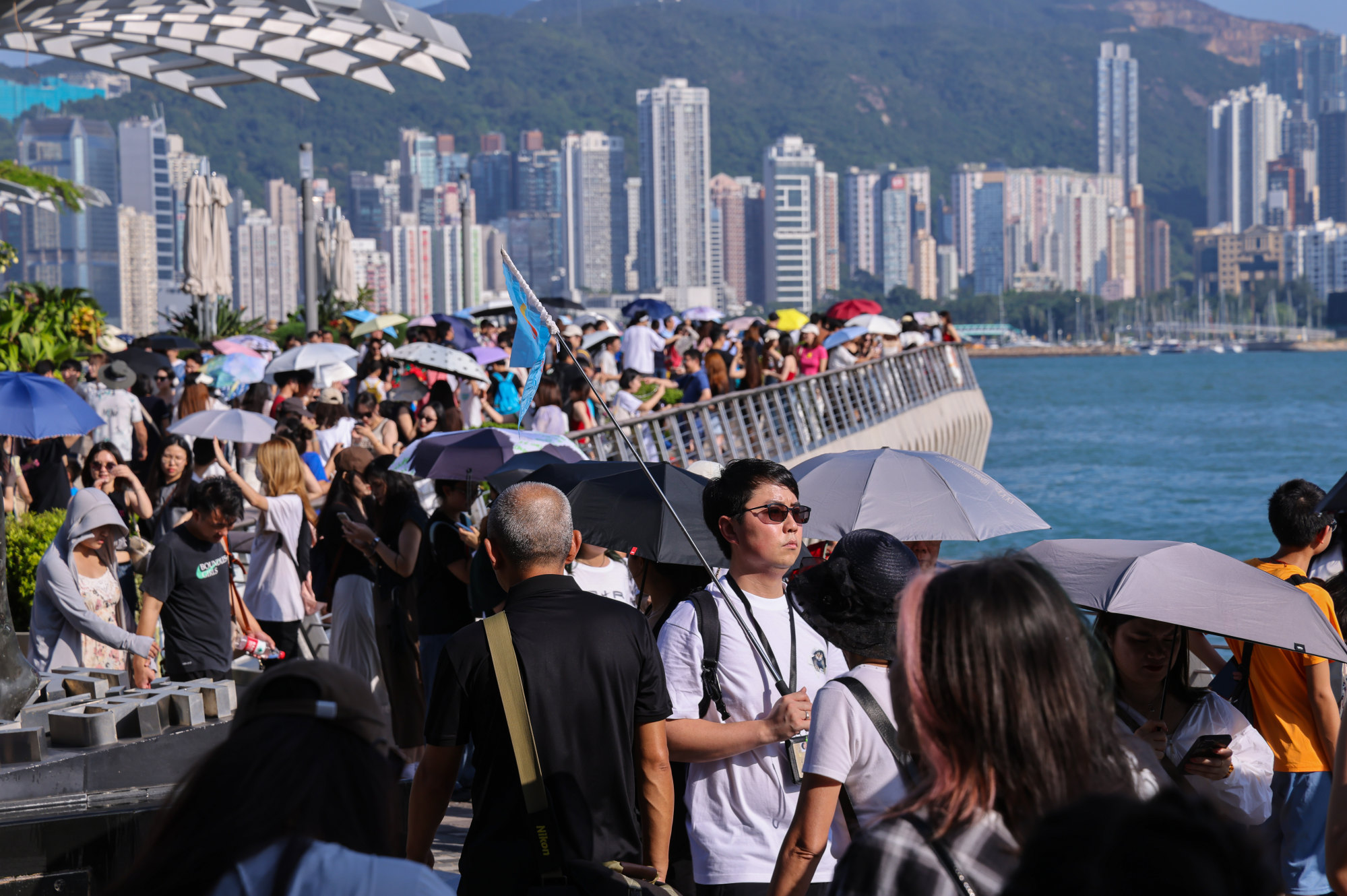
Hong Kong, mainland China in talks over bringing back multiple-entry visas for Shenzhen residents before Lunar New Year: government source
- Government insider says resumption of scheme possible before Lunar New Year, but final decision has yet to be made
- Liaison office director meets Guangdong party secretary, provincial governor to discuss ways to enhance cooperation and boost development of Greater Bay Area
But the insider on Thursday also said a final decision had not been made yet, as many cross-border measures required further discussion with mainland officials.
“It’s possible [to resume the scheme before Lunar New Year],” the source said. “The government remains open to any measures that can help promote the city’s tourism industry.”
‘Beijing should let mainlanders visit Hong Kong more easily, boost duty-free’
Huang said he hoped the liaison office would continue to guide and support Guangdong in collaborating with Hong Kong to promote construction of the bay area, according to a statement from the office.
He added efforts should be made to strengthen the “hard connectivity” of infrastructure and the “soft connectivity” of systems and rules, accelerate the integration of the bay area market, deepen industrial and technological cooperation, and join hands in building a high-level talent hub in the region.
Zheng said they would continue to act as the “super liaison officer” and “super server”, and work with Guangdong to deepen cooperation in fields such as the economy, trade, science and technology. The bay area is Beijing’s scheme to link Hong Kong, Macau and nine Guangdong cities into an economic powerhouse.

But Tien, who is also the convenor of political group Roundtable, said the negotiations could be complicated by Shenzhen not wanting to lose spending to Hong Kong.
“It’s something Hong Kong really wants, but it becomes a concern for Shenzhen as both sides need to boost their economy,” he said on a radio show. “If half of their population comes to Hong Kong to spend, this reduces their domestic consumption.”
No longer belle of the ball? Hong Kong faces stiff competition for tourism
The multi-entry visa scheme was introduced in 2009 to allow Shenzhen residents to make as many trips as they wanted to Hong Kong within a year. It was replaced by once-a-week visit permits in 2015 amid concerns over parallel trading and Hong Kong’s capacity to handle surges in single-day visitors.
“But now the situation is not balanced,” Tien said. “Hongkongers can go to the mainland as frequently as they wish, but mainlanders can only come once a week.”
He added that the current entry restrictions caused the city to lose out on tourist dollars over peak holiday periods, as many mainland visitors made day trips but could not return soon after they left.
How Hong Kong hopes to avoid repeat of New Year’s Eve’s border chaos
“Rooms were expensive or sold out, so mainland tourists had to leave,” he said. “But after they leave, they cannot re-enter the city. So even if the government organises many events throughout the holidays, tourists cannot come back to participate.”
More flexible entry requirements are not the only moves in the spotlight to boost tourism numbers and retail sales.
Hong Kong ‘steadfast’ in driving Northern Metropolis project as hub for bay area integration
North district councillor Ko Wai-kei echoed recent calls by Starry Lee Wai-king, the city’s sole delegate to the nation’s top legislative body, for the central government to increase the duty-free goods allowance for mainland visitors returning home from 5,000 yuan (US$702) to 30,000 yuan.
According to Chinese customs data, items exceeding the 5,000 yuan duty-free concession will be taxed from 13 to 50 per cent.
A 20 per cent duty is set to be levied on personal items, such as bags, watches and clothes, while jewellery, tobacco products and alcohol will be taxed at 50 per cent.

Raistlin Lau Chun, acting secretary for culture, sports and tourism, told lawmakers the government had been in close communication with mainland authorities, but had nothing to add “at this stage”.
The Hong Kong Department Stores and Commercial Staff General Union said a survey of 392 members between December 28 and January 5 showed that almost 70 per cent supported the resumption of the multiple-entry scheme, as the move would boost the local retail sector.
Lam Chi-chung, chairman of the Electrical and Audio Visual Trades Employees Association, told the same radio show on Thursday that the industry supported the return of multiple-entry visas, even if consumer habits had changed and mainland tourists were no longer spending as heavily.
Hong Kong restaurants dealt double blow on New Year’s Eve by tourist trends
“They will publicise their positive experience in Hong Kong on social media and promote the city to their friends, who might want to come and see for themselves,” he said. “This is helpful to Hong Kong’s tourism.”
Ko welcomed the news of the talks and said he believed the issue of parallel trading would not resurface after the relaxation.
Additional reporting by Danny Mok

